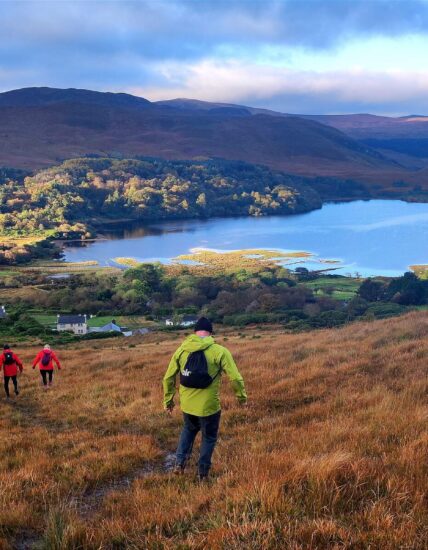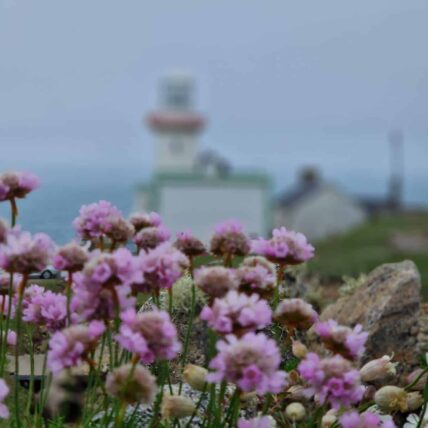Customary Greetings: Most travellers would agree that the Irish in general are a jovial and friendly bunch, especially in rural areas. Someone in the North West may greet you with a ‘how is it going?’ or “hello there!”. It is customary to simply say “I’m grand, thanks”, or “not so bad” in return, and remember people are not asking for your life story!
Weather: The weather is an endless source of conversation for Irish people and is also a neutral subject to start up a conversation with. Someone may say to you, “isn’t the weather just terrible at the moment?” You can simply reply, “it is indeed”, or “hopefully it will improve soon”, which will be a genuine reply if you are on a short holiday break!
Signs of a Friendly People: People in rural areas still sometimes wink and nod their head when meeting and greeting someone and will often extend their hand for you to shake as a sign of welcome and acknowledgement. You will often see people sign and wave to one another across a town or village street and motorists who meet neighbours on local roads will also sometimes beep their car horn, flash their lights or raise a hand, fingers or thumbs in a friendly greeting. Indeed, it is not uncommon on back roads, to come across two motorists stopped side by side for an impromptu chat!
Dealing with Frustrations: Irish people in general, are quite sensitive in character, and despite projecting an outward display of self confidence and bravado, rarely lose their temper in public. The weather is mild and so are people’s manners. Visitors should always try and voice their complaints or frustrations in a similar fashion. Indeed beeping your car horn in frustration to hurry another vehicle in rural Ireland, is akin to an insult as is raising your voice in anger to someone in public you don’t know.
Pub Culture: Pubs are still a great place to experience the very essence of Irish social culture. There are still plenty of traditional style pubs in Donegal where you can enjoy good company and the craic, (which is an Irish slang word for chatting and music).
It’s best not to ask questions about either religion or politics, especially the recent conflict in Northern Ireland. Even local people tend to avoid these topics in pubs, as there are often subtle cultural and religious sensitivities to take into account. Besides, the authentic pub is more for light hearted conversation and banter than serious discussions.
The Rounds System: This simple custom, while not as strong as previous times, is still an important aspect of Irish pub culture. If someone buys you a drink, it is customary to buy them one back. That’s why it’s almost impossible in Ireland to go to the pub for just one beer! The next round starts when the first person is about to finish their drink, even if you are only half way through your pint.
Pub Etiquette: Someone might also ask you, “will you take a wee one”, or “would you take a wee dram from the top shelf?”. This means would you like a whiskey, or some other alcoholic spirits of your choice as ‘wee’ means small while ‘dram’ means a measure or small glass of whiskey. These words are also used in Scotland. You can decline this offer by simply saying, “no thanks, I think I will stick to the pints.”
At the end of a good night out in the pub, you might be asked, “sure you’ll have a drink for the road.” This doesn’t mean that your drinking partner is giving you a drink to take home with you. This is an old Irish custom whereby you have one more drink for the journey home. If you have had enough to drink politely decline as you don’t want to end up literally on the road!
If someone in the pub starts to break into song, to tell a joke or recite a poem then it is customary to immediately stop your conversation and listen respectfully until they are finished. One sure way of impressing local company in the pub is to follow up by offering to sing a song yourself.
Driving: The North West has a modern network of primary roads but secondary roads can still be quite winding and narrow. Tractors are common and sheep sometimes stray onto more remote roads. Always drive with caution on back roads to reduce the chance of causing or being involved in an accident.









